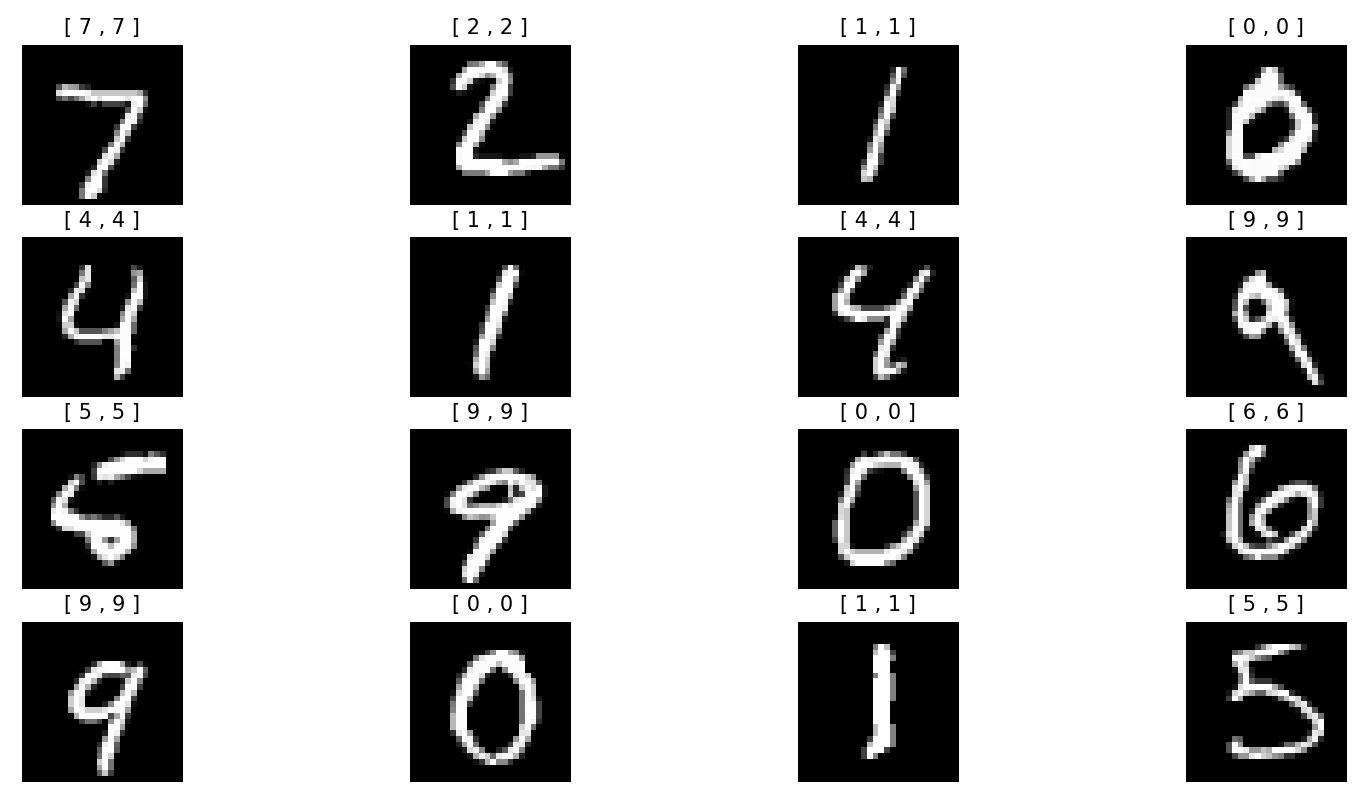tensorflow预测单张mnist数据集图片 — 数字识别(Predict single image for MNIST dataset by tensorflow - digital recognition)
MNIST数据集可以说是深度学习的入门,但是使用模型预测单张MNIST图片得到数字识别结果的文章不多,所以本人查找资料,把代码写下,希望可以帮到大家~
1 # Buding your first image classification model with MNIST dataset
2 import tensorflow as tf
3 import numpy as np
4 import matplotlib.pyplot as plt
5 from tensorflow.keras.models import Sequential, load_model
6 from tensorflow.keras.layers import Dense, Conv2D, Dropout, Flatten, MaxPooling2D
7
8 # download the data
9 mnist = tf.keras.datasets.mnist
10 (x_train, y_train), (x_test, y_test) = mnist.load_data()
11
12 # reshape and normalize the data
13 # reshaping the array to 4-dim so that it can work with the Keras API
14 x_train = x_train.reshape(x_train.shape[0], 28, 28, 1)
15 x_test = x_test.reshape(x_test.shape[0], 28, 28, 1)
16 input_shape = (28, 28, 1)
17
18 # making sure that the values are float so that we can get decimal point after division
19 # astype()用于改变所有数据元素的数据类型
20 x_train = x_train.astype('float32')
21 x_test = x_test.astype('float32')
22
23 # normalizing the RGB codes by dividing it to the max RGB value
24 x_train /= 255
25 x_test /= 255
26
27 # create the model
28 model = Sequential()
29 model.add(Conv2D(28, kernel_size=(3, 3), input_shape=input_shape))
30 model.add(MaxPooling2D(pool_size=(2, 2)))
31 model.add(Flatten())
32 model.add(Dense(200, activation=tf.nn.relu))
33 model.add(Dropout(0.3))
34 model.add(Dense(10, activation=tf.nn.softmax))
35 # compile and fit our model
36 model.compile(optimizer='adam', loss='sparse_categorical_crossentropy', metrics=['accuracy'])
37 model.fit(x=x_train, y=y_train, epochs=10)
38 model.save('model_mnist_model.h5')
39
40 # load model
41 model = load_model('model_mnist_model.h5', compile=True)
42 model.evaluate(x_test, y_test)
43
44 # 查看前16张图片预测结果
45 images = x_test[:16]
46 labels = y_test[:16]
47 fig = plt.figure()
48 for count, (image, label) in enumerate(zip(images, labels)):
49 image_reshape = np.reshape(image, (1, 28, 28, 1))
50 # predict result
51 proba = model.predict(image_reshape)
52 # 得到概率最大的结果就是预测的结果
53 result = np.argmax(proba, axis=1)
54 print('proba : ', proba)
55 print('class_result: ', result)
56 print("label : ", label)
57 ax = fig.add_subplot(4, 4, count+1)
58 ax.imshow(image, "gray")
59 # 把预测结果设置为标题
60 ax.set_title("[ " + str(label) + " , " + str(result[0]) + " ]")
61 # 关闭坐标轴
62 ax.axis("off")
63 plt.show()
64 pass
代码运行结果:

可以看到仅仅使用一次的卷积神经网络,就可以达到不错的检测效果~
参考资料:


